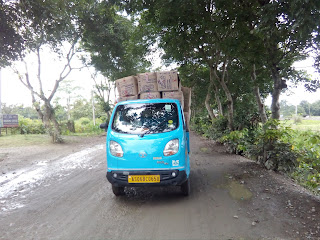How to increase sales in fmcg
How to increase sales in fmcg Friends , increasing sales in fmcg sector is not a very difficult task. You need to follow some basic principles. Thumb rule is that “ If want to increase sales in fmcg , then sell more to existing buyer or find new buyer”. By existing buyer we mean those customer who are currently doing transaction with us. Like existing retailer, wholesalers and distributor. How will you sell more to existing buyer ? You need to sell more quantity of presently buying products and also sell presently non buying product. Suppose a retailer presently buying 10 packets of biscuit only . Now you have to sell minimum 11packets of biscuits to that retailer and sell some chips or any other products of your company. This is called sell more to existing buyer. Find new buyer means those outlet in the market who are not buying from you currently. While working in the fmcg market you need to identify non buyer and make a list. With the help of this list you can



